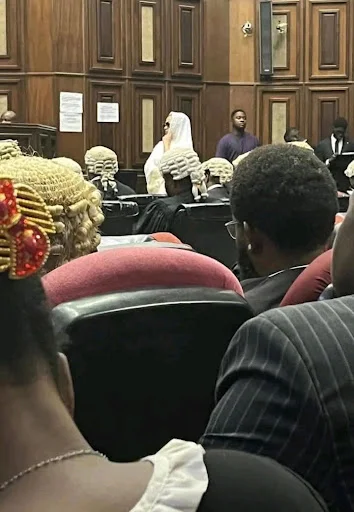By Jako, June 30, 2025
Senator Natasha Akpoti-Uduaghan, representing Kogi Central, was on Monday arraigned before the Federal High Court in Abuja on a six-count charge bordering on cybercrime. The case, filed by the Office of the Attorney General of the Federation (AGF), stems from allegations of spreading injurious falsehoods against Senate President Godswill Akpabio and former Kogi State Governor Yahaya Bello.
The Federal Government accused the embattled Senator, who is currently under suspension, of violating Section 24 (2)(c) of the Cybercrimes (Prohibition, Prevention, etc.) (Amendment) Act, 2024. The charges relate to remarks allegedly made by Senator Natasha during a public gathering and a television interview on April 1, 2025, in Ihima, Kogi State.
According to the prosecution, Senator Natasha claimed that Senator Akpabio had instructed Yahaya Bello to orchestrate her assassination in Kogi, rather than in Abuja, to make it appear as a local incident. The controversial statement was reportedly disseminated electronically and deemed capable of inciting public unrest and tarnishing reputations.
The arraignment follows a petition filed by Senate President Akpabio to the Inspector General of Police, citing reputational damage. Upon police investigation, the AGF proceeded with formal charges under case number FHC/ABJ/CR/195/2025.
Appearing in court alongside her husband, Senator Natasha pleaded not guilty to all charges. Her lead counsel, Professor Roland Otaru (SAN), filed for bail, stressing her constitutional right to presumption of innocence and arguing that she poses no flight risk or threat to the investigation.
Director of Public Prosecution of the Federation (DPPF), Mohammed Abubakar, did not oppose the bail request but urged the court to attach conditions to ensure the defendant’s availability for trial.
The presiding judge granted bail and fixed September 22, 2025 as the date for the commencement of trial.
The case has drawn national attention, highlighting growing concerns over political speech, defamation laws, and the scope of Nigeria’s cybercrime legislation.


Comments
Post a Comment